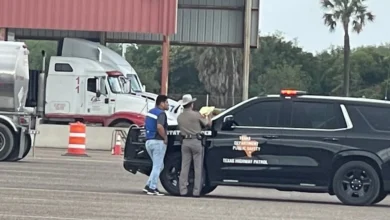Navigating the Legal Process

When an accident occurs, the insurance companies for both parties will start calling. They will often promise to do everything they can to help you.
A truck accident lawyer will have extensive experience dealing with these insurers and will be able to negotiate on your behalf. They will also be able to handle any investigations that may be required.
Getting Started
The complexities of truck accidents can be overwhelming for victims and their families. When choosing an attorney, look for one who understands the emotional and financial toll these events take on those involved. They should also be empathetic and offer support throughout the legal process.
When interviewing potential attorneys, ask them about their experience with trucking accident cases. Trucking accidents present unique factors and require more excellent knowledge regarding federal and state regulations than auto accident claims. An experienced truck wreck lawyer will understand how to proceed with these cases.
Once hired, a lawyer will investigate the incident and gather evidence for your case, including police reports, eyewitness statements, and any citations issued. They will also request information from the truck’s black box, which can provide valuable data about the accident. They will then negotiate with the at-fault party’s insurance company to obtain compensation for your losses.
Choosing a Lawyer
A reputable truck crash lawyer can focus on the legalities of your case while you cope with your injuries. They can take over the burden of gathering evidence, contacting witnesses, and filing documents so you can focus on your recovery. They can also help you understand the full extent of your losses, including medical expenses, lost wages, and future financial hardships.
When searching for a truck accident lawyer, it is essential to find one who is experienced and has an excellent track record. Ask the potential attorney how many truck accidents they have litigated and how many they have won.
You should also make sure your lawyer is empathetic to the trauma that you and your loved ones are going through. A good truck accident lawyer will listen to you and treat you respectfully from the moment you first speak to them. If they seem indifferent or uninterested, this is a red flag. They should be ready to meet with you in person or answer your questions over the phone.
Meeting With Your Lawyer
Suppose you are contacted by representatives of the trucking company, their insurance company, or their attorneys. In that case, it is essential to tell them that you have hired an attorney and do not discuss anything further with them. They aim to get you to settle for the smallest amount possible, even if it doesn’t cover your injuries and damages.
The lawyer you hire should have experience with truck accident injury cases and a deep understanding of the federal and state laws that apply to these claims. Look for an attorney with a proven track record and positive reviews from past clients.
Truck accident lawyers will also help you calculate the amount of damages you may be entitled to receive. This includes the cost of medical bills, in-home care services, lost income, pain and suffering, and more. Then, they will prepare and file a complaint, starting the formal legal process. This also typically involves the parties in a discovery process to exchange information and evidence.
Filing Your Claim
Choosing the right truck accident lawyer is essential to receiving total compensation for your damages. To ensure that the attorney is right for you, look at their qualifications, track record, and communication skills. You can also research third-party reviews and forums to learn more about the firm or individual attorneys you are considering.
Trucking accidents often result in severe injuries and extensive damages. To secure fair compensation, you must prove that the truck driver violated their duty of care, causing the accident that led to your injuries and losses.
A knowledgeable and experienced truck accident lawyer will manage all communications with insurance companies, handle negotiations, and represent your best interests throughout the legal process. They will ensure your claim is filed within the statute of limitations and that all relevant evidence is collected and organized. In addition, they will assess your damages and submit them to the at-fault party for consideration.



